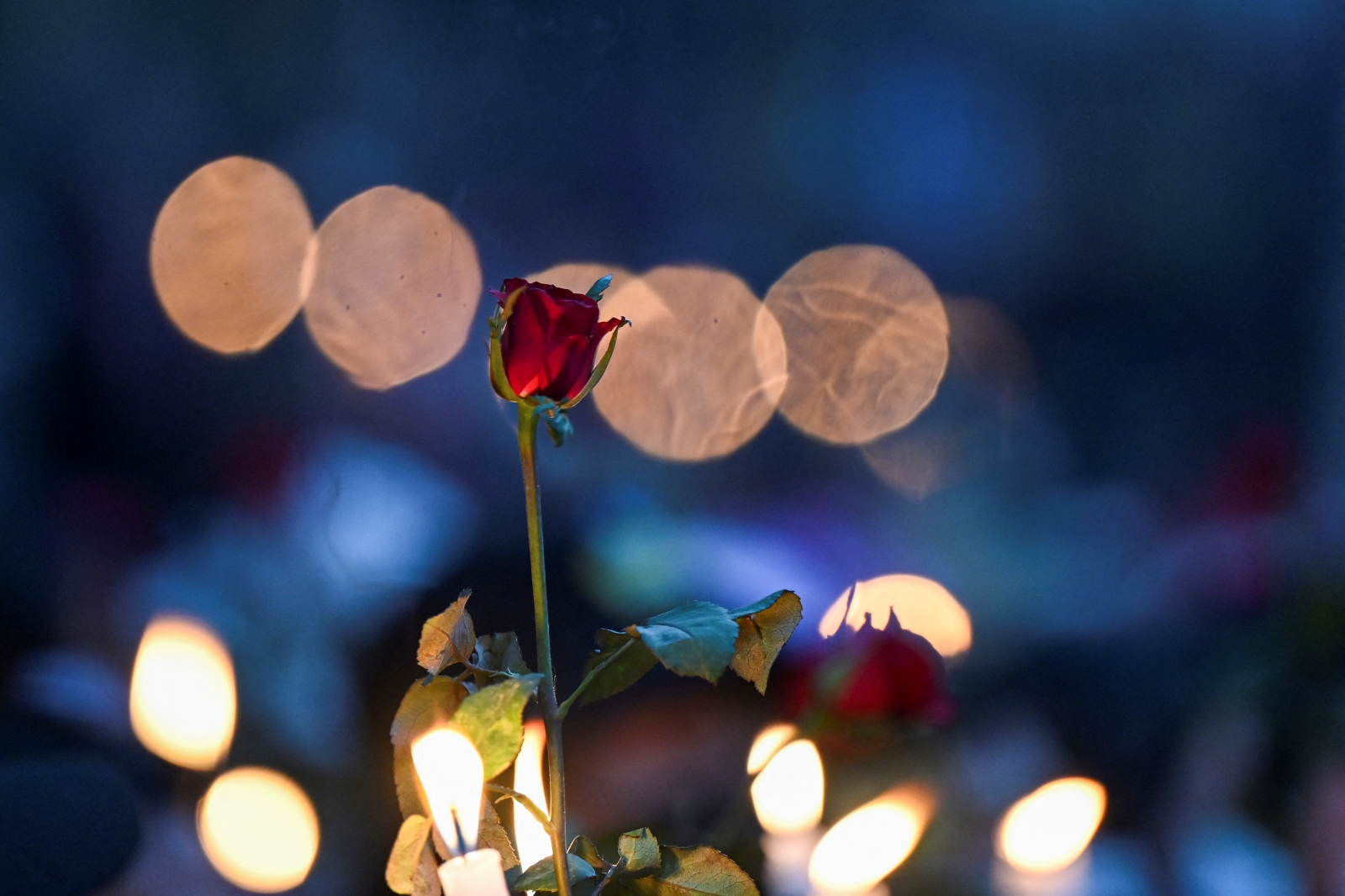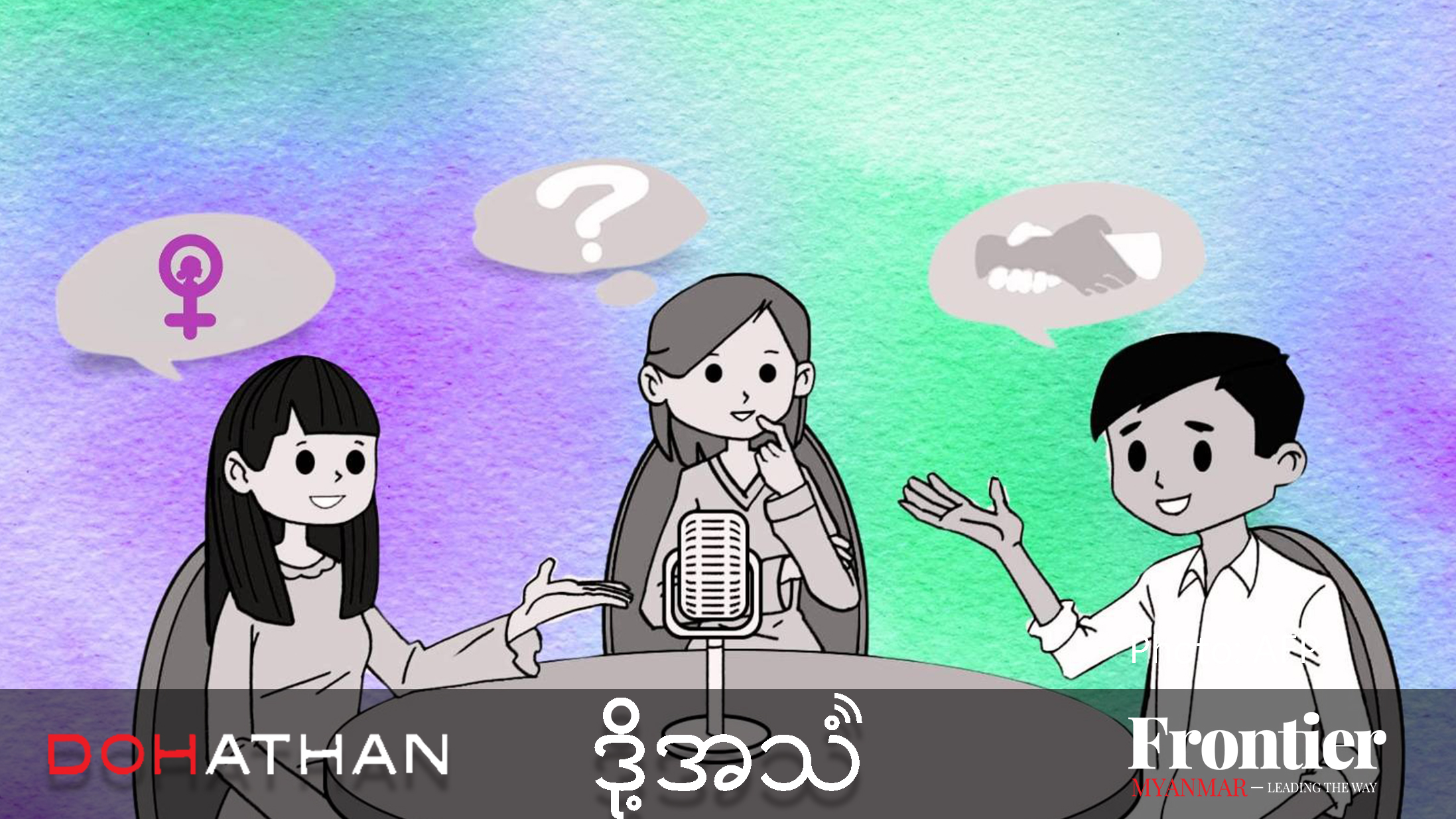Despite far-reaching political reforms in recent years, Myanmar’s human rights activists are once again feeling the sharp end of the stick as the 2015 election looms.
By OLIVER SLOW | FRONTIER

Land rights activist Ma Su Su Nway. (Ann Wang / Frontier)
Ma Su Su Nway was returning to Yangon from Bago Region on July 23 when the bus on which she was travelling was stopped by police in Indagaw Township. She was arrested. The labour activist, who has been helping farmers in Indagaw with a land grab case against the government since 2013, began facing harassment from the authorities last year, said her husband, Ko Marky, also known as Kyaw Kyaw Htwe.
“The military built a large fence around the land, so the children who need to pass through the land [to go to school], had to climb a fence,” he said. Ma Su Su Nway took a photo of children climbing the wall and shared it on her Facebook page, which has about 9,000 followers.
The photo angered the military, Ko Marky said, and in June Ma Su Su Nway received a court summons on a trespassing charge. Believing there was no case to answer, she declined to attend court, leading to her arrest in Indagaw. Ma Su Su Nway’s trial began on July 29. She could face up to three months in jail for trespassing if convicted under Article 447 of Myanmar’s Penal Code.
Support more independent journalism like this. Sign up to be a Frontier member.
Ma Su Su Nway was imprisoned twice by the former military regime for her activist work. Ko Marky says little has changed since then for human rights defenders (HRDs) such as his wife.
“Although it is better that we have the freedom of expression now, the situation is not different to before. The door has opened a bit, but it is only ajar,” Ko Marky told Frontier at the Yangon office of the 88 Generation Peace and Open Society, where he works as a secretary for the group’s legal department.
“In fact, they have become stricter recently,” he said. “Look at this example, my wife has been working on this land issue for many years, but they have only arrested her now.”

The families of political prisoners at the Yangon headquarters of the 88 Generation Peace and Open Society. (Ann Wang / Frontier)
The 88 Generation group’s activities include providing assistance to the families of political prisoners, and waiting outside the office was Daw Khin Mya. Her son, Ko San Aung Win, was arrested three months ago for protesting without permission against article 59(f) of the Constitution, which makes Daw Aung San Suu Kyi ineligible for the presidency because she has family members – two British sons – who “owe allegiance to a foreign power”.
“Since my son was arrested, we cannot operate our family business [a small restaurant], but I am proud of my son for fighting for the country,” Daw Khin Mya said. “This government has not changed, it is the same as before.”
Under military rule, HRDs conducted most of their work in secrecy for fear of arrest. When reforms began after the change of government in 2011, hopes rose that the situation was improving for activists working on such issues as land rights, women’s rights and media freedom.
The signs were encouraging: political prisoners were released, restrictions on freedom of assembly and expression were eased, pre-publication censorship of the print media was abolished and the private sector was permitted to publish daily newspapers. But as the landmark 2015 general election looms, there is increasing concern about the persecution of HRDs.
A recent report by the Burma Partnership and Assistance Association for Political Prisoners, Who Defends the Defenders?, said that those who “defend human rights, or question the power of narrative of the Burma Government – and their military and corporate backers – now seem to be operating in as dangerous environment as ever.”

Lawyer Robert Sann Aung talks to activists locked up in a police car outside Yangon’s Sanchaung Township Court. (Ann Wang / Frontier)
U Robert Sann Aung is one of Myanmar’s most prominent human rights lawyers and since the transition began has represented some of the most high profile HRDs in court, among them the Unity 5.
“If you compare the situation this year with the last two years, it is worse,” he said. “This year is the worst year for the government in terms of them cracking down on human rights defenders.”
U Robert Sann Aung, one of three finalists for this year’s Martin Ennals Award for Human Rights Defenders – named after a former secretary general of Amnesty International and presented each October in Geneva – is defending 10 of the dozens of students on trial since their arrest at Letpadan in March, when police used heavy-handed tactics against protesters opposed to a new education law.
He is planning to sue township and regional authorities over what he alleges is the illegal detention of some of the student protesters, including two minors who were held in adult prisons for more than two months.
U Robert Sann Aung says a major challenge for HRDs in Myanmar is the absence of an independent judiciary.
“The judge will be biased towards the police,” he said, referring to the trial of the students arrested at Letpadan. “In our country, the judicial system is under the power of the government and has no independence. Those who are being accused of crimes do not have any protection.”
The Who Defends the Defenders? report highlights the laws most commonly used to charge those fighting for human rights, such as the Peaceful Assembly and Peaceful Procession Act 2011, also known as the Assembly Law, under which charges were brought against many of the students arrested at Letpadan.
Section 505(b) of the Penal Code, which prohibits crimes against the state or public tranquility, is often used in conjunction with Section 18(b) of the Assembly Law to target HRDs, the report said.
Activist Daw Naw Ohn Hla was charged under both laws after she protested outside the Chinese embassy in Yangon after the fatal shooting of woman villager at a demonstration at the Letpadaung copper mine near Monywa in December. In May, Daw Naw Ohn Hla was sentenced to prison for four years and four months with hard labour.

Bo Kyi, joint secretary of the Assistance Association for Political Prisoners, points at a wall of political prisoner photographs. (Ann Wang / Frontier)
The abolition of pre-publication censorship of the print media in August 2012 and the granting of daily newspaper licences to the private sector the following year – ending a five-decade monopoly by state-run dailies – were hailed as being among the most significant early reforms under U Thein Sein’s president. But journalists continue to report intimidation and harassment by the authorities and some are serving jail terms for doing their job.
In July 2014, four journalists and the chief executive officer of Unity Journal were given lengthy prison terms with hard labour under the colonial era Official Secrets Act for reporting that a military-run factory in Magway Region was producing chemical weapons, a claim denied by the government.
Last October, five journalists from Bi Mon Te Nay journal were jailed after it quoted a statement by the Myanmar Democratic Current Force group that the people had appointed an interim government that included opposition leader Daw Aung San Suu Kyi, although they were released under the presidential amnesty on July 30.
In another incident last October, journalist Aung Kyaw Naing, better known as Ko Par Gyi, died while in the custody of the Tatmadaw, which said he was shot while trying to escape. President U Thein Sein ordered the Myanmar National Human Rights Commission to investigate the circumstances of Ko Par Gyi’s death and its report was dismissed by his wife, Daw Thandar, as a fabrication. An investigation into Ko Par Gyi’s death by a civilian court is continuing.
Assistance Association for Political Prisoners co-founder Ko Bo Kyi, who was involved in writing the HRD report, said that the government and the public need a better understanding of human rights. The use of torture by the authorities to extract confessions from activists was still common, he said.

U Bo Kyi, joint secretary of the Assistance Association for Political Prisoners. (Ann Wang / Frontier)
“We need a mechanism to protect human rights defenders across the country, because we feel that we are not protected,” said Ko Bo Kyi.
Referring to the lack of independence in the judiciary, he said civil society groups should be allowed to conduct their own investigations. “The government needs to recognise that civil society is not the enemy of the state, but the eyes and ears of the state,” Ko Bo Kyi said.
He also expressed disappointment at the July 30 amnesty, which saw the release of 155 Chinese nationals, most of whom were sentenced to life imprisonment for illegal logging only eight days earlier. Of the 6,966 people released under the amnesty, the AAPP says only 13 were political prisoners. It says 120 political prisoners remain in jail and another 444 are awaiting trial.
“This amnesty is not genuine,” U Bo Kyi said, questioning why students who want to bring progress to the country remain in jail. “[Myanmar] is not a democratic country. We have gone from a totally authoritarian country to a constitutionally authoritarian country where the army is still in control of everything.”






